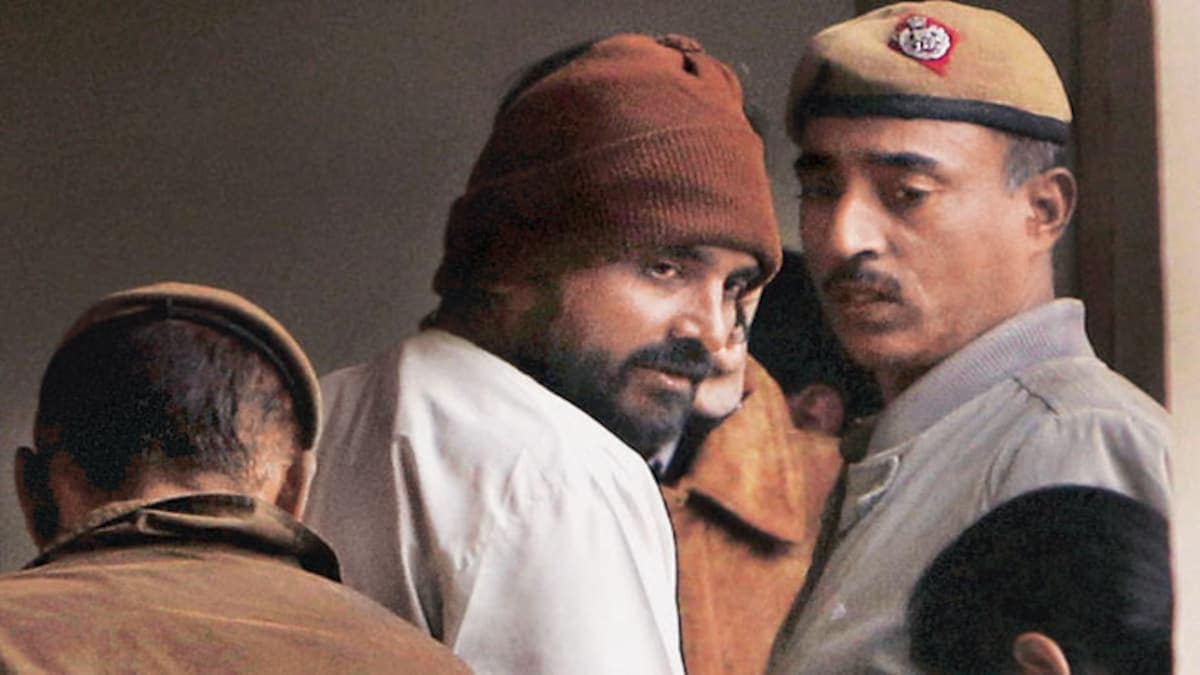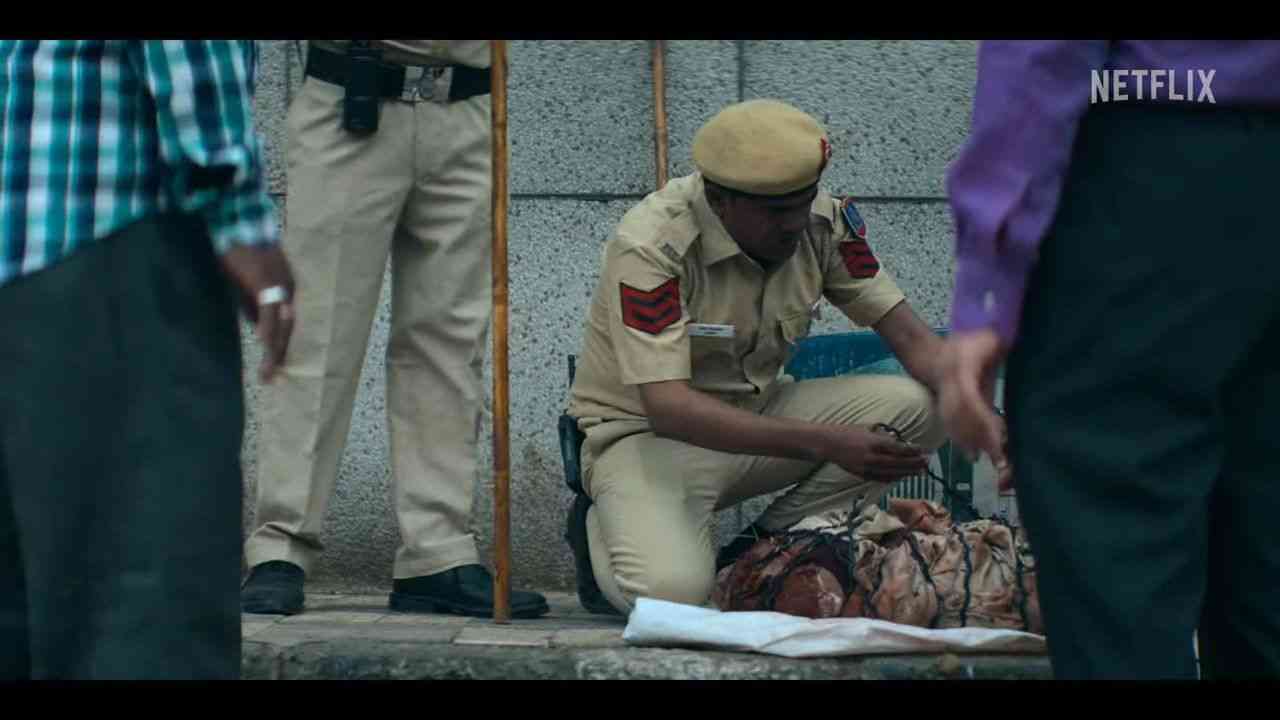Indian Predator The Butcher of Delhi director Ayesha Sood on the notorious CC Killer: ‘He knows how to play the system’
In October 2006 a dismembered, decapitated body was found carefully wrapped outside Gate number 3 of Delhi’s Tihar Jail. With it was a handwritten letter, written by a person who took credit for the murder, claiming he did it as a means to get back at the Delhi Police for falsely imprisoning him years earlier. Indian Predator: The Butcher Of Delhi, a new three-part docu-series on Netflix made by VICE India, seeks to tell the story of Chandrakant Jha, this violent killer and the subsequent investigation into his murderous rampage, considered one of the worst in Delhi’s history. Also read: Indian Predator The Butcher of Delhi, a spine-chilling serial killer show
The Butcher Of Delhi joins Netflix India’s expanding portfolio of true crime docu-series after Leena Yadav’s well-received Burari Deaths and the unremarkable Crime Stories: India Detectives. Directed by Ayesha Sood, The Butcher Of Delhi tells an electrifying story that offers more twists and turns than most fictional crime thrillers can conjure. While the first two episodes explore the horrific crimes and the psychology of the man responsible for them, the third episode pivots to the plight of migrants and raised some important questions about the ethical considerations of documentary filmmaking.
In a spoiler-filled interview, I spoke to director Ayesha Sood about Chandrakant’s story, the politics of getting the truth in India, and the responsibilities that come with making a series about such a gruesome crime. Edited excerpts:
This is such a fascinating story with so many insane twists and turns. It’s almost like you’re telling the story of a serial killer who’s literally operating as if he wanted a documentary made about him made someday. How did you come across the story of Chandrakant?
Vice India had a pool of stories that were in different stages of research and development and Chandrakant’s case was one of them. Then, you keep studying and researching to see if there’s enough material there in terms of archival material and whether people are willing to come on camera and so on. And this story had all of those. But also, despite living in Delhi, I hadn’t heard of this case at all which fascinated me. That this audacious, brutal crime happened and we barely heard about it in our press.

The ending is slightly confusing because in one scene you tell us he’s on parole and in the next scene we’re told he’s still in prison. So to confirm, is he out on parole?
He was eligible for parole, it’s the right of anyone in jail, but since 2020 he’s had some code violations and his parole has been denied. So, the actual status is he’s in jail and he’s probably not going to be out for the foreseeable future
True crime documentaries hinge on trust and transparency and the audience believing the facts and story you’re telling. I imagine that’s a lot more difficult to achieve in India where there are so many more obstacles to getting the truth. For example, when you’re talking to the police, there’s always that fear of people trying to come across a certain way or push their own agenda. How do you tackle those aspects to get the truth?
It’s always going to be tough, especially in a documentary where it’s not scripted. Everybody is going to tell you their truth. You have to be really immersed in the material and really know your facts as much as you can, to push them in a certain direction. They are going to tell you the truth as they see and remember it, and memory is a delicate, fickle thing. Facts change, you glorify yourself in your own story and so on. You just have to ensure you know the material you want to present and you’re able to guide the conversation. There’s no way you can extract what you want from somebody else’s mouth. If you find that it’s factually completely off, you have to take a call and cut it. You can’t use it.
What makes it so riveting is Chandrakant’s dance with the police and how he really exposes how broken the system is. It’s so interesting how far he could go. He literally had to keep committing murders to be taken seriously and have actual resources attached to finding him. Is the failure of the policing system something you wanted to explore more?
You know you can look at it in two ways. There are failures, but they also managed to catch him. They are very cognizant of what they’re up against and their failings. They know where they came up short. Also, keep in mind that Delhi Police are really stretched. The amount of time and resources they can put into things like collecting evidence and investigating, considering what they’re up against is still pretty impressive. The system, of course. one hopes would be better. Like next time enact legislation and put in systems that help police work easier. For example, we have a policeman who says there is no integrated database. Or why don’t interstate police departments talk to each other?

A big part of how you bring this story to life in the series is the dramatised re-enactments and voiceovers where you have actors playing Chandrakant and his victims. It adds a lot of impact to the show, but what are the kind of responsibilities you have when taking dramatic liberties like that?
I would say that all of the dramatisations are based on police records or what key characters and witnesses have told us. Especially where MO is concerned. A lot of it we actually couldn’t have people just describe it on camera because it was too gruesome, like when they were discussing how the neck was chopped and things like that. So, we chose to dramatise it to make it more digestible. And there is no skirting around the brutality of this case. It’s brutal and you need to be able to confront it to tell this story. I think the balance is making sure we aren’t glorifying a situation or making his voice the voice of God.
I imagine it’s a strange position to be in to make a documentary about a killer that’s still alive and who may well be out on parole soon. How do you ensure that you’re tackling the story in a responsible way? For example at the end of the last episode, you have the son of one of Chandrakant’s victims saying on camera that he wants to kill Chandrakant. Could that not put him in a dangerous position?
As I said, he’s probably not going to be out for the foreseeable future. I think what was expressed by Anil Mandal (the victim)’s son is a sense of vengeance for being wronged and I think that is his view to express. Would he ever have a chance to meet Chandrakant? I don’t think that’s likely.
You say in the last episode that you tried to talk to him and were denied permission. What was that process like and was there ever a chance of you getting access to him? What would you ask him?
Since the BBC Documentary India’s daughter, the laws have changed and you cannot get cameras into Tihar. And now with the pandemic, it’s even harder. But If I could have, I would’ve asked him so much and I’d probably need a whole other episode. You want to hear his side of the story. Obviously, we spoke to his lawyer and we know from him that Chandrakant doesn’t believe he’s guilty. He’s very clear on his stance.
But he does admit to the murders to the police?
It’s complicated. He’s very smart. He admits certain things and denies others. He understands the system and knows how to play it.
For all the latest Entertainment News Click Here
For the latest news and updates, follow us on Google News.
